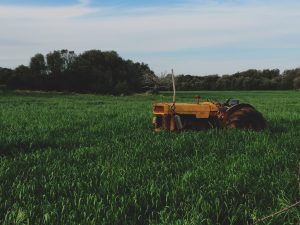
If you’ve ever dreamed of cultivating your piece of earth in Nigeria, now is as good as any to begin. If you need help to buy farmland in Nigeria and you desire to stay well abreast of all extant laws, ensuring you navigate the process seamlessly and legally, this is the guide for you. Fair warning though, the experience can be both complex and rewarding.
- Researching Your Ideal Location:
Before diving into the world of farmland acquisition, it’s essential to identify the location that aligns with your agricultural goals. Consider factors such as soil quality, climate, proximity to markets, and availability of water resources. Nigeria boasts diverse ecological zones, so choose a region that suits your specific agricultural needs.
- Understanding the Land Use Act:
Nigeria operates under the Land Use Act 1978, which places land ownership under the jurisdiction of the government. Individuals can acquire the right to use the land, making it crucial to understand the legal framework that governs land transactions. Familiarize yourself with the Act to ensure compliance throughout the buying process.
- Seek Professional Guidance:
The complexity of land transactions in Nigeria makes it advisable to engage the services of a reliable real estate professional. A knowledgeable agent or consultant can provide valuable insights into available farmland, help you navigate legal intricacies, and negotiate on your behalf.
- Title Verification:
One of the most critical steps in the process is verifying the land title. The seller should possess a legal right to sell the property. Common types of land titles include Certificate of Occupancy (C of O), Deed of Assignment, and Gazette. Confirm the authenticity of these documents to avoid potential legal issues later on.
- Conduct a Thorough Land Survey:
To ensure that you are getting the land you intend to purchase, conduct a comprehensive land survey. This will confirm the boundaries and size of the property. A professionally executed survey helps prevent disputes over land boundaries in the future.
- Due Diligence:
Undertake due diligence to uncover any existing legal encumbrances, unpaid taxes, or disputes associated with the land. This step is crucial for safeguarding your investment and ensuring a smooth transfer of ownership.
- Negotiate and Agree on Terms:
Once you’ve identified a suitable piece of farmland, negotiate the terms of the sale with the seller. This includes the purchase price, payment schedule, and any other conditions that both parties should agree upon. Engaging legal counsel during negotiations can provide an extra layer of protection.

- Draft a Comprehensive Sales Agreement:
Formalize the agreed-upon terms in a Sales Agreement. This legal document should clearly outline all aspects of the sale, including the purchase price, payment terms, and any other conditions. Having a written agreement is essential for the protection of both the buyer and the seller.
- Fulfill Payment Obligations:
Once the terms are agreed upon, fulfill your payment obligations according to the agreed-upon schedule. Payment completion is a significant milestone in the land acquisition process.
- Transfer of Ownership:
With payment completed, the process of transferring ownership can commence. This involves obtaining a new title deed in your name. The legal and administrative procedures for this step may vary depending on the location and specific circumstances.
- Register the Land Transfer:
To formalize the transfer of ownership, register the land with the appropriate government authorities. This typically involves submitting the necessary documents to the land registry office. Proper registration ensures the legality of your ownership and protects your interests.
- Seek Legal Advice Throughout the Process:
Throughout the entire process, it’s crucial to seek legal advice. A legal expert can guide you through the intricacies of land transactions, ensuring that you comply with all legal requirements and avoid potential pitfalls.
In conclusion, the path to becoming a farmland owner in Nigeria involves careful planning, thorough research, and adherence to legal procedures. By following these steps and seeking professional guidance, you can turn your dream of owning farmland in Nigeria into a reality. Remember, each region may have specific nuances, so staying informed and working with experienced professionals is key to a successful and legally sound land acquisition.


